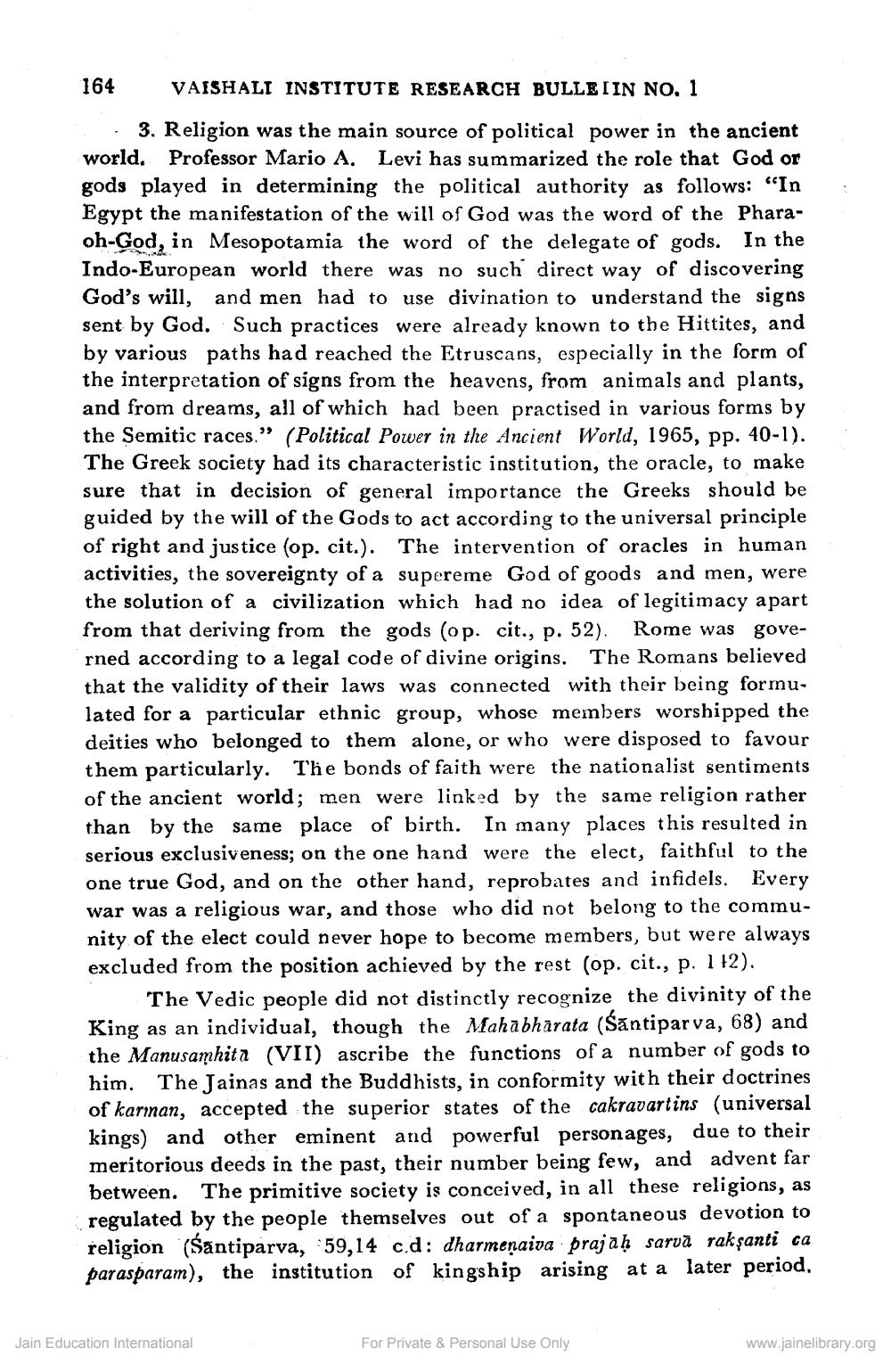________________
164
VAISHALI INSTITUTE RESEARCH BULLE IIN NO. 1
3. Religion was the main source of political power in the ancient world. Professor Mario A. Levi has summarized the role that God or gods played in determining the political authority as follows: "In Egypt the manifestation of the will of God was the word of the Pharaoh-God, in Mesopotamia the word of the delegate of gods. In the Indo-European world there was no such direct way of discovering God's will, and men had to use divination to understand the signs sent by God. Such practices were already known to the Hittites, and by various paths had reached the Etruscans, especially in the form of the interpretation of signs from the heavens, from animals and plants, and from dreams, all of which had been practised in various forms by the Semitic races." (Political Power in the Ancient World, 1965, pp. 40-1). The Greek society had its characteristic institution, the oracle, to make sure that in decision of general importance the Greeks should be guided by the will of the Gods to act according to the universal principle of right and justice (op. cit.). The intervention of oracles in human activities, the sovereignty of a supereme God of goods and men, were the solution of a civilization which had no idea of legitimacy apart from that deriving from the gods (op. cit., p. 52). Rome was governed according to a legal code of divine origins. The Romans believed that the validity of their laws was connected with their being formulated for a particular ethnic group, whose members worshipped the deities who belonged to them alone, or who were disposed to favour them particularly. The bonds of faith were the nationalist sentiments of the ancient world; men were linked by the same religion rather than by the same place of birth. In many places this resulted in serious exclusiveness; on the one hand were the elect, faithful to the one true God, and on the other hand, reprobates and infidels. Every war was a religious war, and those who did not belong to the community of the elect could never hope to become members, but were always excluded from the position achieved by the rest (op. cit., p. 112).
The Vedic people did not distinctly recognize the divinity of the King as an individual, though the Mahabharata (Santiparva, 68) and the Manusamhita (VII) ascribe the functions of a number of gods to him. The Jainas and the Buddhists, in conformity with their doctrines of karman, accepted the superior states of the cakravartins (universal kings) and other eminent and powerful personages, due to their meritorious deeds in the past, their number being few, and advent far between. The primitive society is conceived, in all these religions, as regulated by the people themselves out of a spontaneous devotion to religion (Santiparva, 59,14 c.d: dharmenaiva prajaḥ sarva rakṣanti ca parasparam), the institution of kingship arising at a later period,
Jain Education International
For Private & Personal Use Only
www.jainelibrary.org




